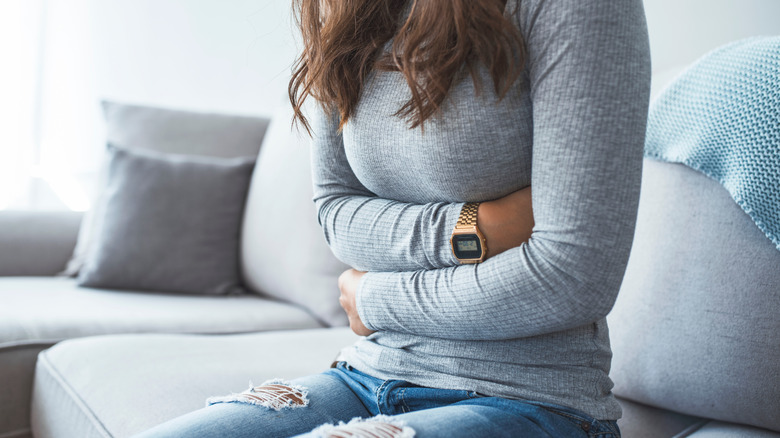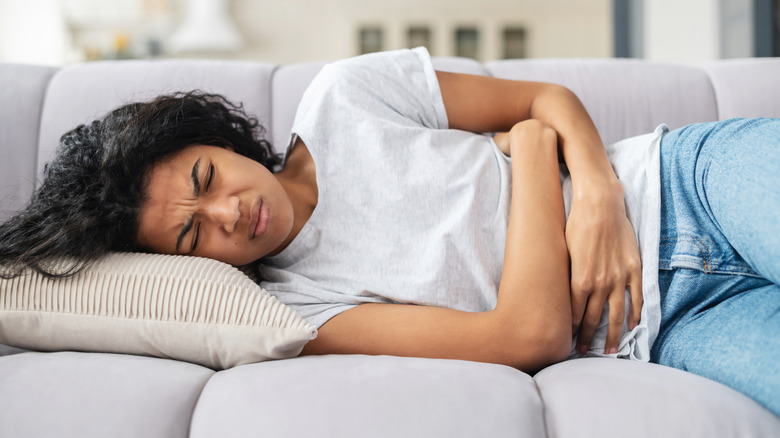When To Worry About Your Painful Menstrual Cramps
Most women know menstrual cramps can be painful. According to the American College of Obstetrics and Gynecology (ACOG), over half of women who menstruate experience pain related to their period at least one or two days a month. For most women, the pain is uncomfortable, but mild. However, some will experience pain so severe, it interferes with their day-to-day activities. The pain often begins earlier in the menstrual cycle and can last several days out of the month (via Healthline).
Signs that you have severe menstrual cramps include pain that doesn't respond to over-the-counter pain relievers like ibuprofen; cramps that are accompanied by heavy bleeding and clotting; and pain that affects your overall quality of life. Sometimes, there is no clear cause for why some women have more painful menstrual cramps. But there are some medical conditions that can lead to severe pain during menstruation. These include endometriosis, polycystic ovary syndrome (PCOS), fibroids, pelvic inflammatory disease (PID), adenomyosis, and cervical stenosis. In some instances, painful period cramps can be the result of an intrauterine device, or IUD, a long-acting reversible contraceptive birth control device inserted into the uterus.
How to treat severe menstrual cramps
If your period pain is not relieved by over-the-counter pain medication, talk to your OB-GYN. A doctor can perform a pelvic exam, as well as a number of other tests, including a Pap smear, ultrasound, CT scan, and gynecologic laparoscopy, to find out what might be causing the severe pain.
To reduce the severity of painful menstrual cramps, prescription strength nonsteroidal anti-inflammatory drugs are available (via Mayo Clinic). Sometimes, a doctor might recommend going on hormonal birth control to ease period pain. If severe period cramps are caused by an underlying condition like fibroids or endometriosis, treating that condition can help ease pain. In some cases, surgery may be required. Certain lifestyle changes can also help ease period pain. These include regular exercise, reducing stress, using a heating pad or soaking in a hot bath, and taking dietary supplements like vitamin E, omega-3 fatty acids, vitamin B1, and vitamin B6.


